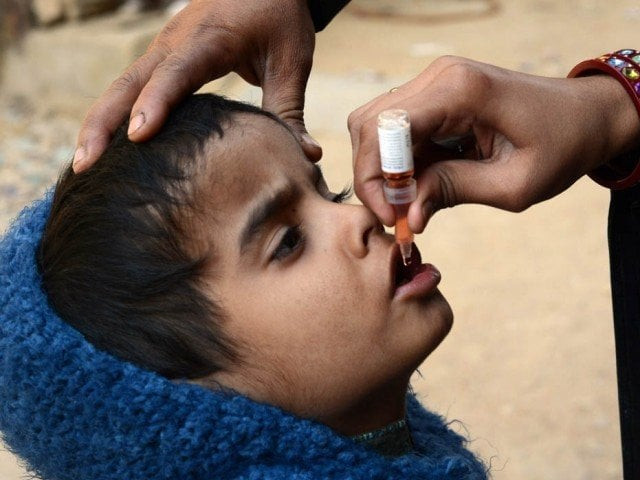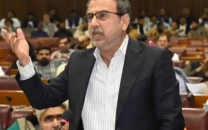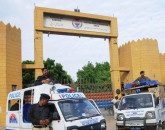Polio eradication: Pakistan welcomes Iran’s offer of free vaccines
Agree to strengthen the Pakistan-Iran-Afghanistan Malaria network

PHOTO: AFP
On June 15, Iranian health and medical education officials offered free polio vaccines to Pakistan in a meeting with the federal health services minister. The delegation is on a three-day visit to Pakistan to explore options of extending cooperation to Pakistan.
Talking to The Express Tribune, a senior official at the National Health Services, Regulation and Coordination (NHSRC) Ministry said if the plan materialised, it would be a major support for the country, which is among the only three countries worldwide with a polio epidemic. This year 25 children have been crippled by the virus so far.
Every year Pakistan requires 40 to 50 million doses of polio vaccines. The country can get a major relief if Iran contributes the expected 4 to 5 million vaccine doses.
Pakistan and Afghanistan are considered one epidemiological block in terms of polio because of genetic relationships and epidemiological links between the wild type poliovirus isolates in the two countries. Tehran wants to support both countries to put an end to this crippling disease, officials said.
Anti-malaria drugs
Pakistan and Iran also agreed to strengthen the Pak-Iran-Afghanistan Malaria (PIAM) network and make joint efforts for controlling the disease vector.
A joint committee has been formed to meet periodically and define appropriate mechanisms to form agreements as well as discuss, negotiate and exchange ideas to move forward in the health sector.
The NHSRC official, who did not want to be named, said that while Iran was about to eradicate malaria, Pakistan was still at the controlling stage due to lack of investments.
“Majority of malaria cases are being reported from the districts bordering Iran, leading our neighbours to believe that Pakistan is exporting malaria to the country,” said the official.
According to official statistics, 177 million people in Pakistan are at the risk of suffering from malaria. Around 3.5 million presumed and confirmed malaria cases emerge every year. World Health Organization (WHO) says Pakistan accounts for 43.2% of the population at high risk of malaria in the Eastern Mediterranean Region and 23.4% of the confirmed cases.
The visiting Iranian officials have also evinced keen interest in the area of vaccine production. They informed the NHSRC minister that Iranian President Hassan Rouhani has tasked the country’s health ministry to produce all vaccines in Iran by the end of his term in office.
Published in The Express Tribune, June 18th, 2015.



















COMMENTS
Comments are moderated and generally will be posted if they are on-topic and not abusive.
For more information, please see our Comments FAQ